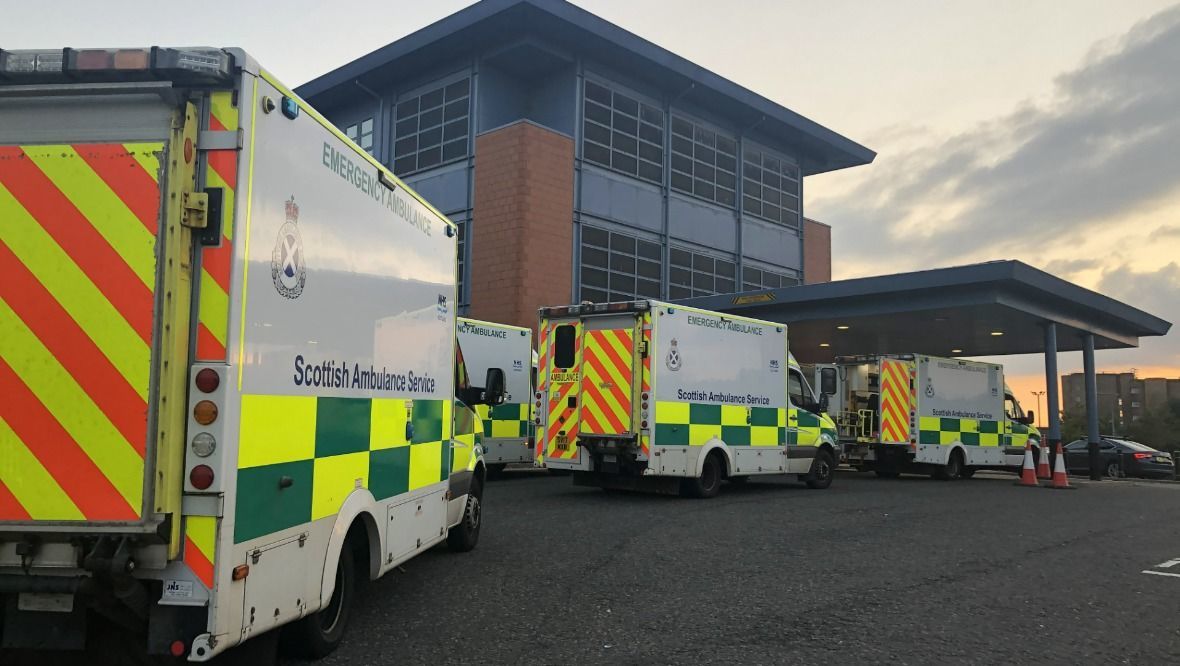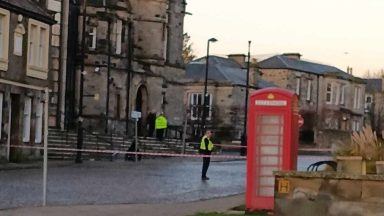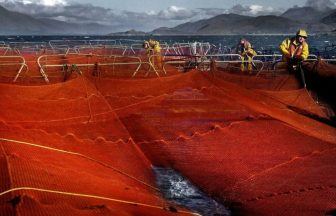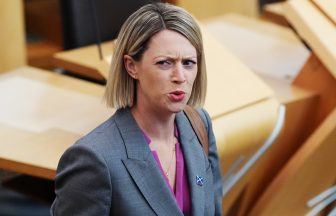Scotland’s health secretary has admitted that waiting times at A&E departments are “not acceptable” after they hit a new record low.
Emergency departments have been under pressure for months, with just 63.5% of patients seen and subsequently admitted or discharged within four hours in the week up to September 11 – over 30% below the target.
The Scottish Government aims to ensure 95% of attendants are seen within this time, a standard not hit since the early days of the pandemic when the number of people attending A&E dropped drastically.
The latest figure shows a drop from 67.7% the previous week and a new low compared to the 64.8% seen in one week in early July.
Of the 27,097 attendances during that week, a record number of people waited more than four hours, at 9,895.
Meanwhile, the number of people waiting more than eight hours was 3,367 – a new high – while 1,257 people waited longer than 12 hours.
Humza Yousaf – who has come under increasing pressure to fix the problem before an expected spike in admissions during the winter – said the figures were “not acceptable”.
“Our accident and emergency departments are working under significant pressure, and in common with health services across the rest of the UK and globally, the impact of the pandemic continues to affect services,” he said.
“Notwithstanding this, I am clear that the current level of performance is not acceptable, that is why I am determined to improve performance and am working closely with boards on a number of measures to reduce pressure on hospitals.
“This includes the national roll-out of our outpatient antimicrobial therapy service which allows patients to be treated at home or in the community which has already saved 45,000 bed days.
“This is funded through our £50m unscheduled care collaborative programme which looks to drive down waiting times through a range of actions, including further development of Flow Navigation Centres in every board to ensure rapid access to a clinician and scheduled appointments, where possible.
The health secretary went on to thank staff working in the NHS, while also urging the public to consider if they require urgent medical attention before attending A&E.
But Scottish Tory health spokesman Dr Sandesh Gulhane said the figures show the “crisis in A&E is not merely continuing, but deepening”.
“That’s extremely alarming for patients and dedicated staff alike, because we know that excess delays to be seen in our emergency wards lead, inevitably and tragically, to avoidable deaths,” he said.
“It’s especially concerning that these worst-ever stats come well ahead of the traditional winter peak demand in A&E.
“The health secretary can’t ignore these dire stats. He must come up with an alternative strategy to tackle this crisis in Scotland’s NHS, as his flimsy Covid Recovery Plan clearly isn’t working.”
Scottish Lib Dem leader Alex Cole-Hamilton said emergency care was “overwhelmed” and staff were at their “wits’ end”, adding that the Scottish Government’s NHS recovery plan has “failed”.
“Ministers have sat on their hands long enough. The health secretary must come to Parliament with a new plan for this winter before the crisis deepens further,” he added.
“Humza Yousaf must also finally accept the need for an inquiry into avoidable deaths linked to the crisis in emergency care and stop opposing our calls for a Burnout Prevention Strategy which would give staff extra protection.”
Scottish Labour deputy leader Jackie Baillie described the figures as “harrowing”, accusing the Scottish Government of “life-threatening inaction”.
“Across our nation, thousands of Scots are waiting ridiculous lengths of time for emergency care. Make no mistake – lives will be being lost as a result.
“Long waits in A&E used to be a sign that there were problems and pressures elsewhere in the NHS system, but the SNP have ignored the warnings and now our NHS is in perpetual crisis with thousands of lives being put at risk in A&E departments on a weekly basis.
“While frontline NHS staff work tirelessly around the clock, Humza Yousaf has completely failed to make any meaningful attempt to address the underlying problems or control this crisis.
“If we are to avoid a full-blown humanitarian crisis this winter then the Government must act now.”
Follow STV News on WhatsApp
Scan the QR code on your mobile device for all the latest news from around the country


 STV News
STV News

























